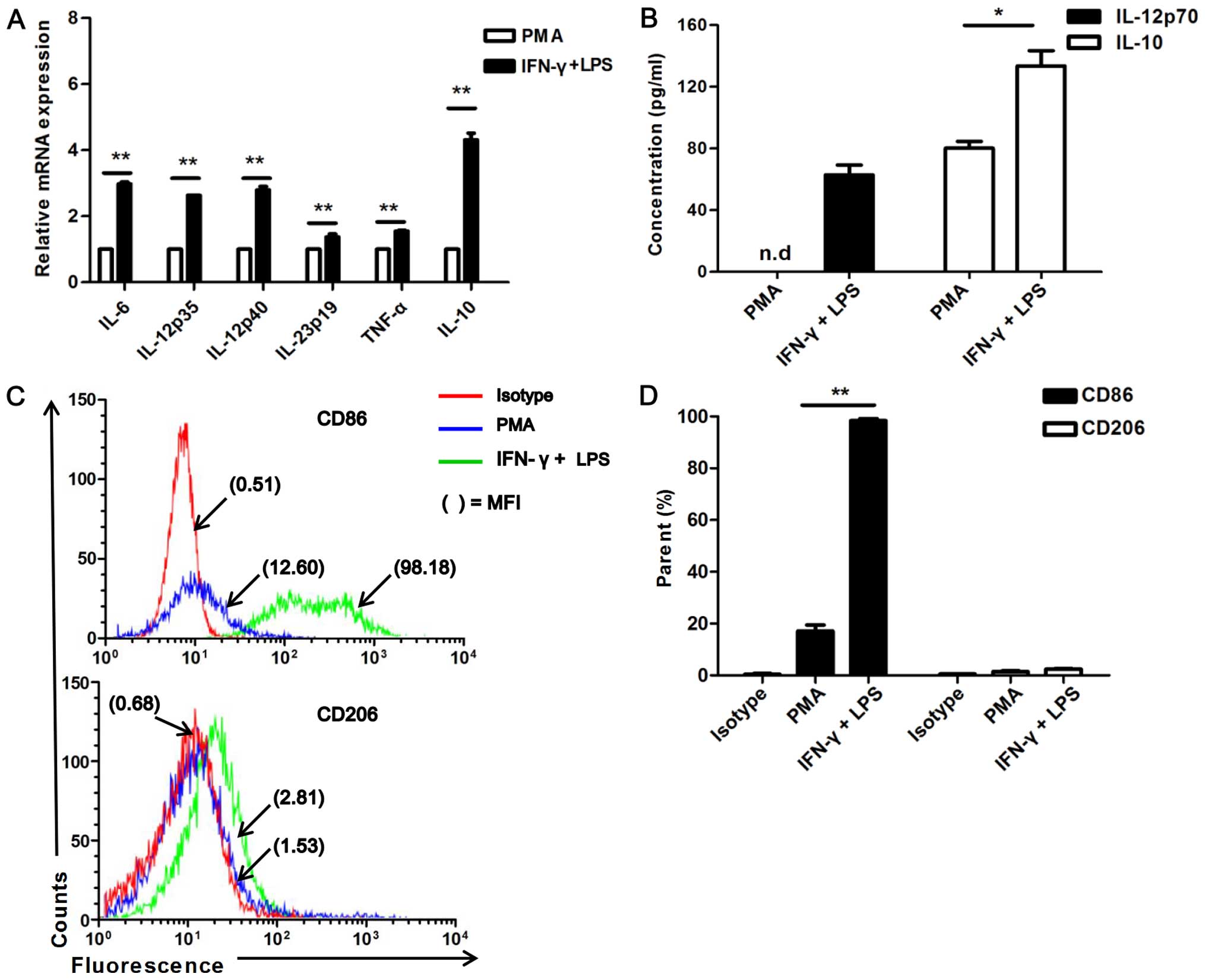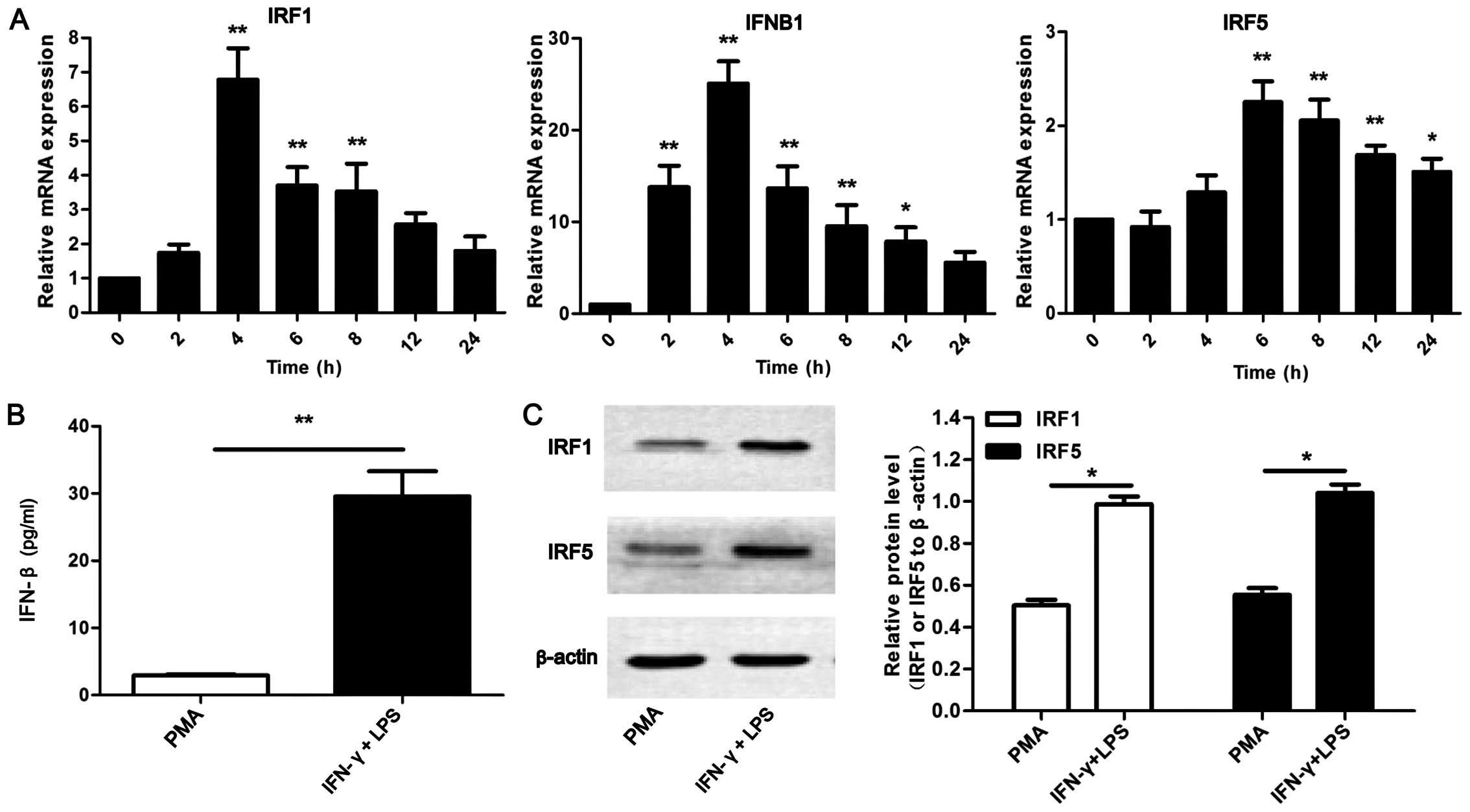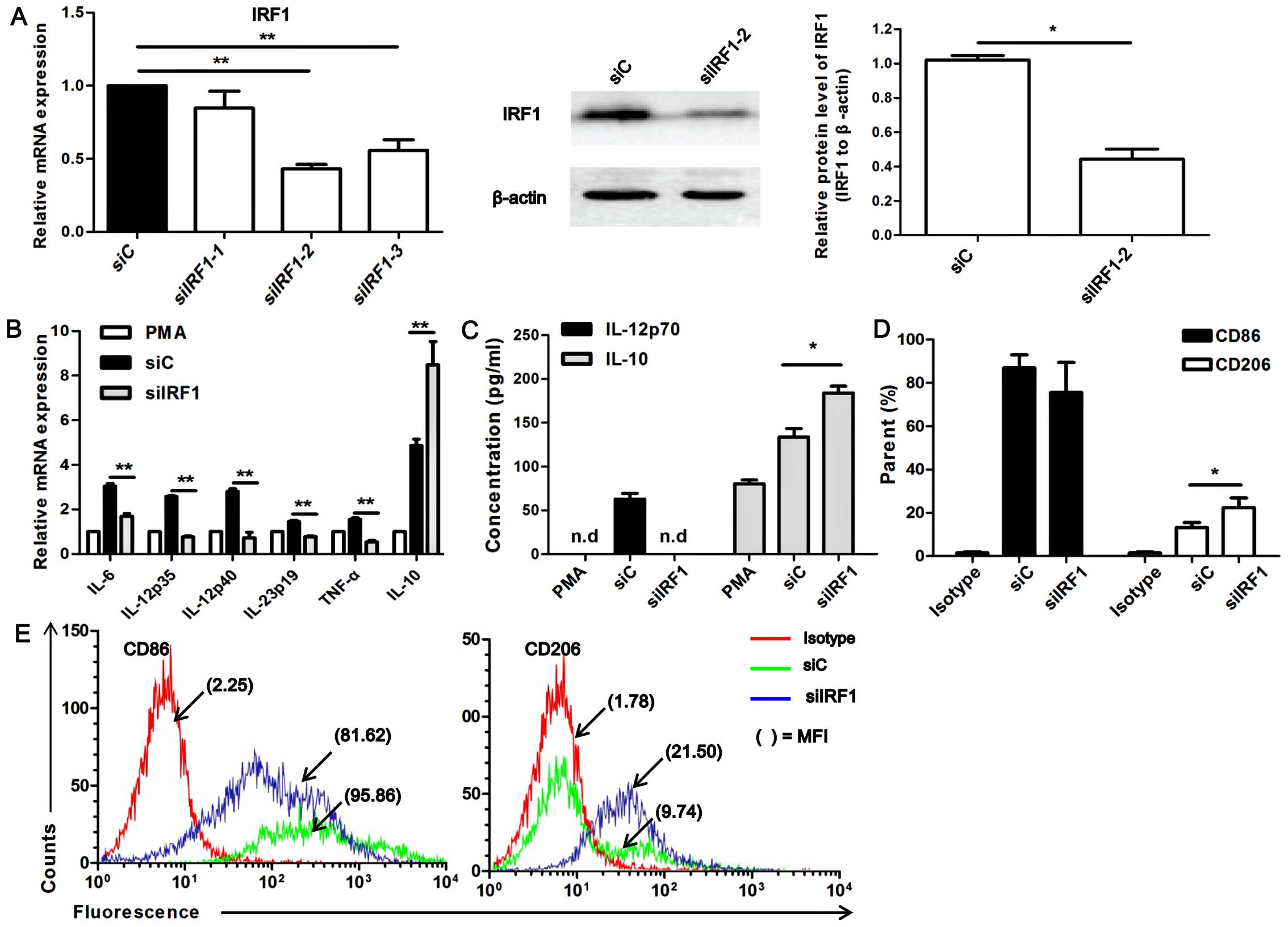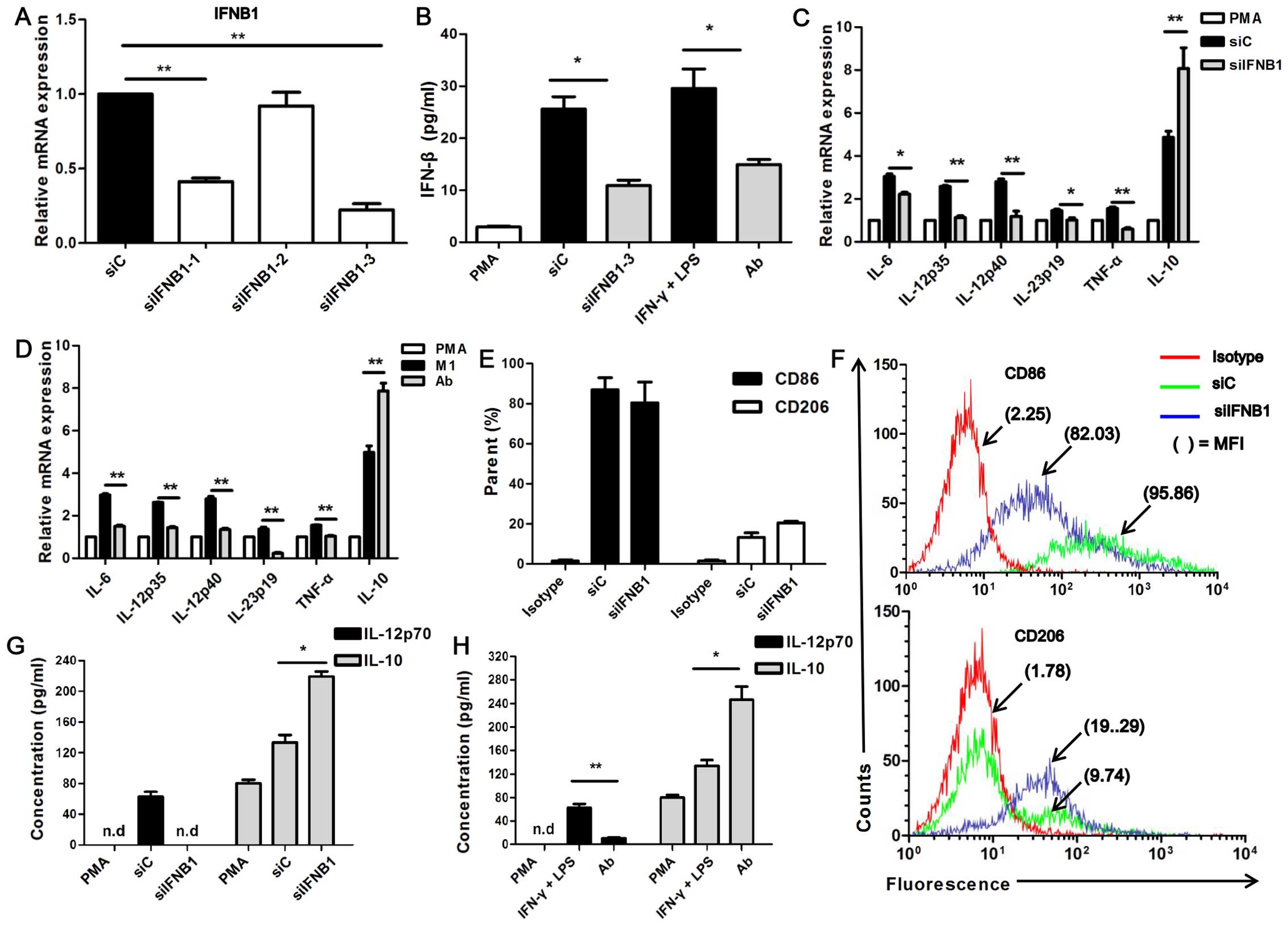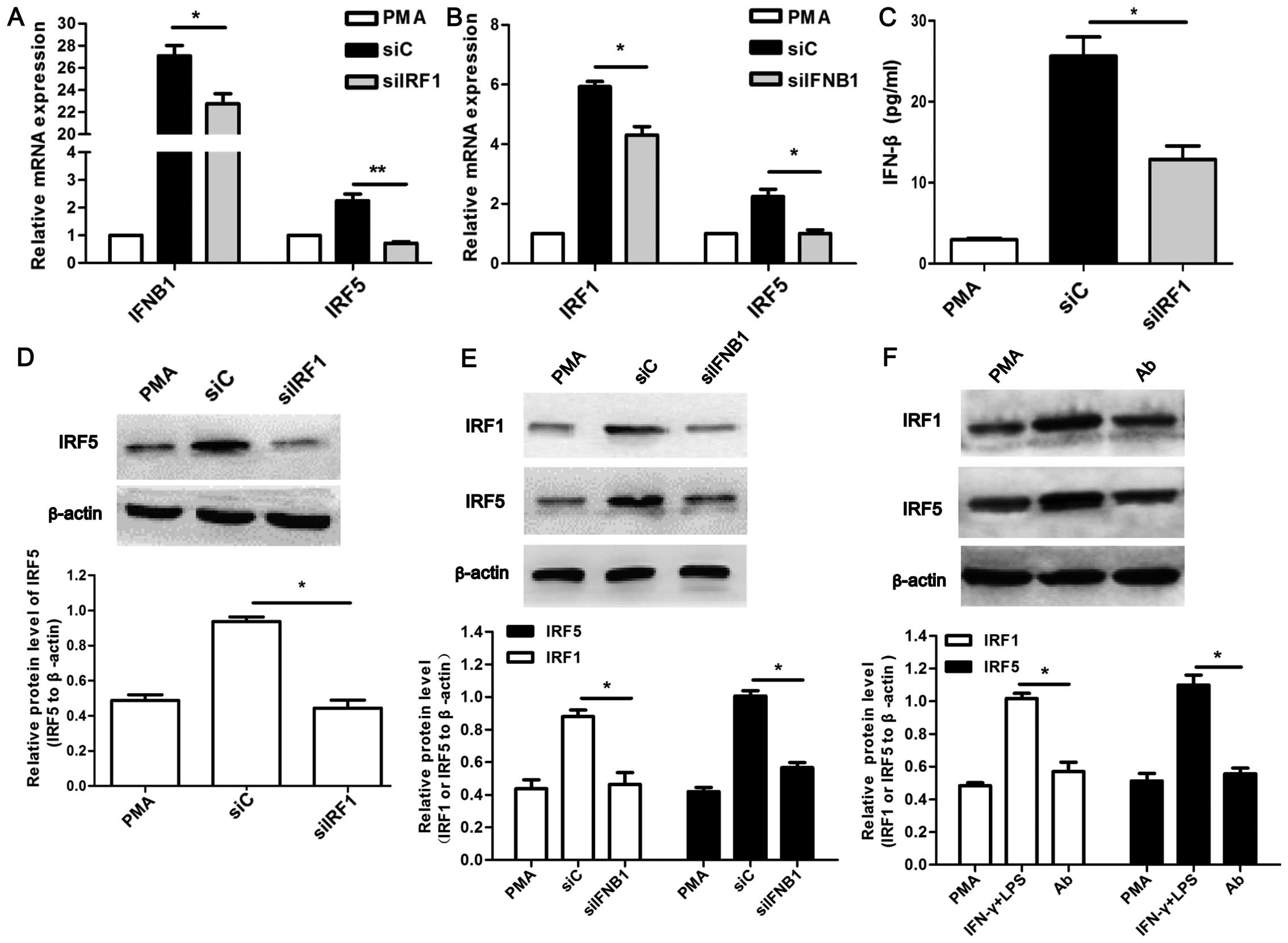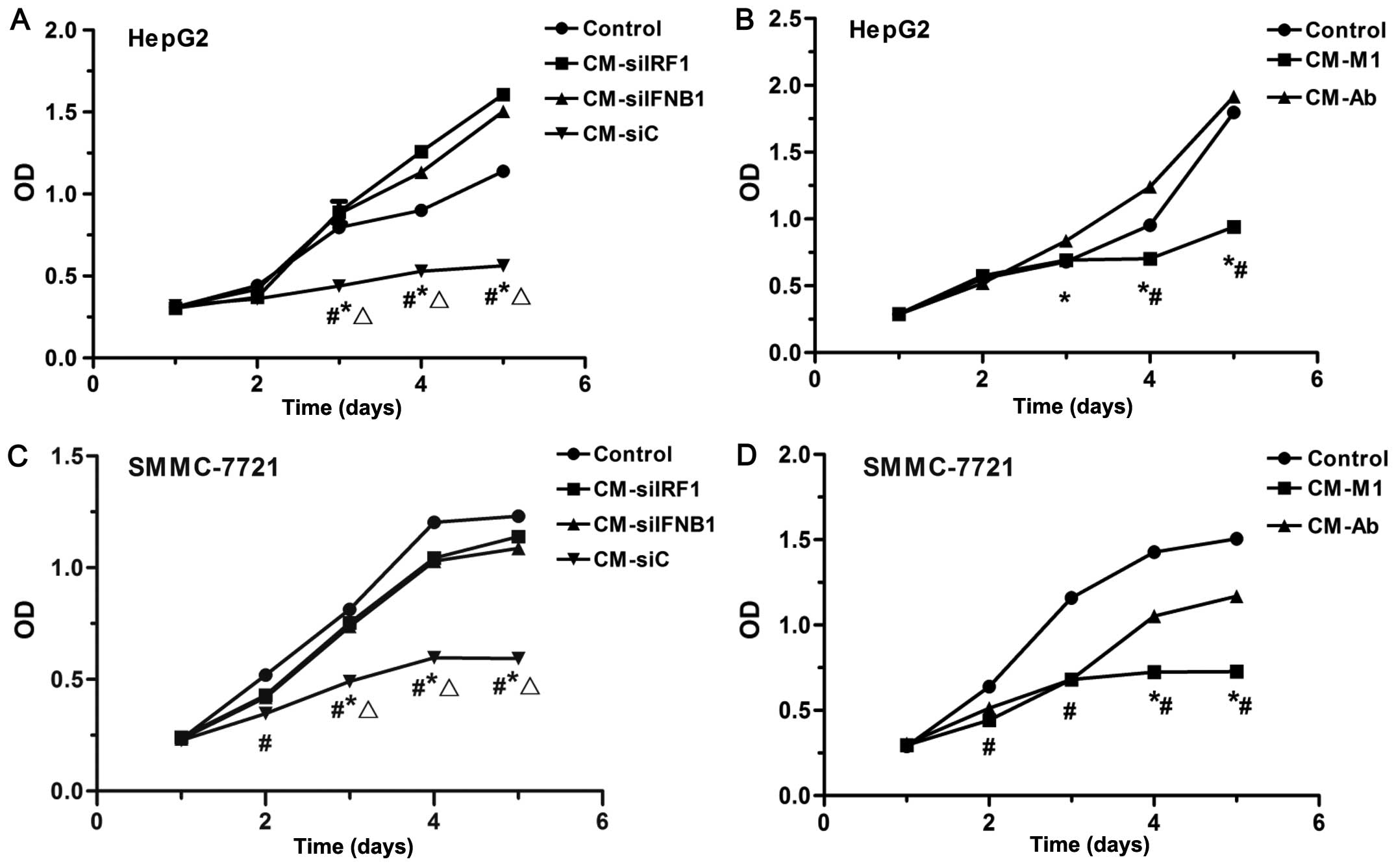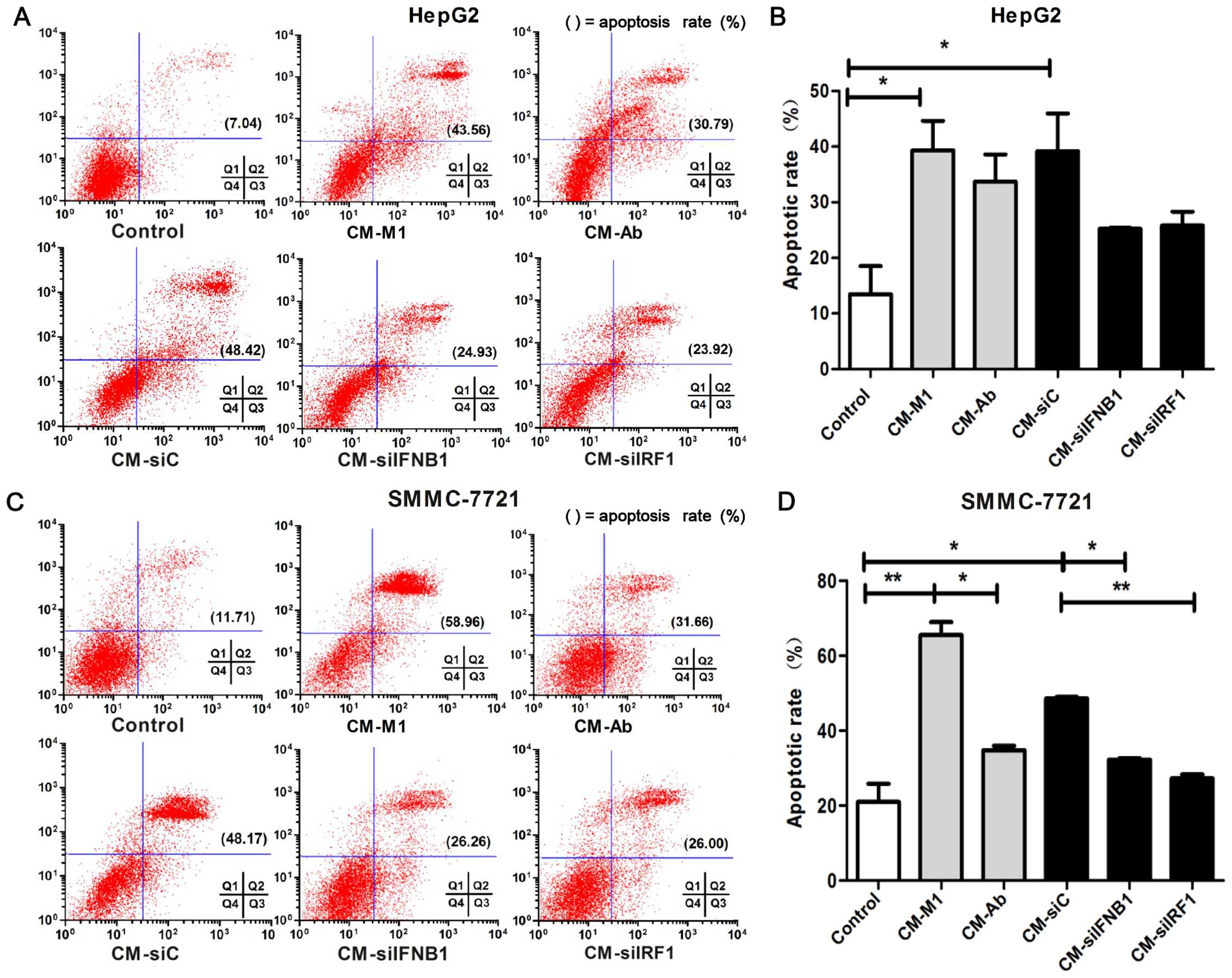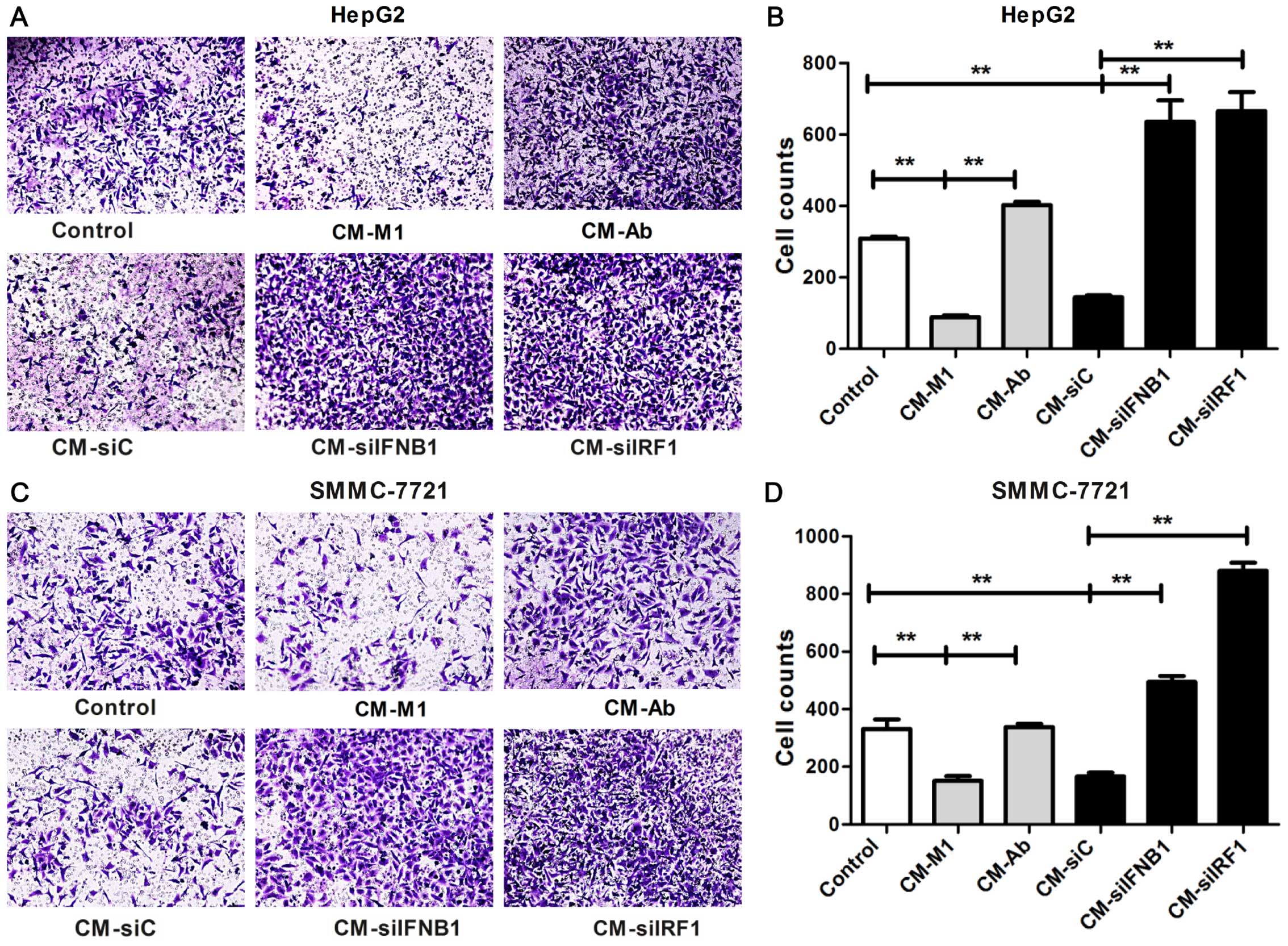|
1
|
Das A, Sinha M, Datta S, Abas M, Chaffee
S, Sen CK and Roy S: Monocyte and macrophage plasticity in tissue
repair and regeneration. Am J Pathol. 185:2596–606. 2015.
View Article : Google Scholar : PubMed/NCBI
|
|
2
|
Murray PJ and Wynn TA: Protective and
pathogenic functions of macrophage subsets. Nat Rev Immunol.
11:723–737. 2011. View
Article : Google Scholar : PubMed/NCBI
|
|
3
|
Lawrence T and Natoli G: Transcriptional
regulation of macrophage polarization: enabling diversity with
identity. Nat Rev Immunol. 11:750–761. 2011. View Article : Google Scholar : PubMed/NCBI
|
|
4
|
Mosser DM and Edwards JP: Exploring the
full spectrum of macrophage activation. Nat Rev Immunol. 8:958–969.
2008. View
Article : Google Scholar : PubMed/NCBI
|
|
5
|
Duluc D, Corvaisier M, Blanchard S, Catala
L, Descamps P, Gamelin E, Ponsoda S, Delneste Y, Hebbar M and
Jeannin P: Interferon-gamma reverses the immunosuppressive and
protumoral properties and prevents the generation of human
tumor-associated macrophages. Int J Cancer. 125:367–373. 2009.
View Article : Google Scholar : PubMed/NCBI
|
|
6
|
Labonte AC, Tosello-Trampont AC and Hahn
YS: The role of macrophage polarization in infectious and
inflammatory diseases. Mol Cells. 37:275–285. 2014. View Article : Google Scholar : PubMed/NCBI
|
|
7
|
Chistiakov DA, Bobryshev YV, Nikiforov NG,
Elizova NV, Sobenin IA and Orekhov AN: Macrophage phenotypic
plasticity in atherosclerosis: the associated features and the
peculiarities of the expression of inflammatory genes. Int J
Cardiol. 184:436–445. 2015. View Article : Google Scholar : PubMed/NCBI
|
|
8
|
Melton DW, McManus LM, Gelfond JA and
Shireman PK: Temporal phenotypic features distinguish polarized
macrophages in vitro. Autoimmunity. 48:161–176. 2015. View Article : Google Scholar : PubMed/NCBI
|
|
9
|
Biswas SK and Mantovani A: Macrophage
plasticity and interaction with lymphocyte subsets: cancer as a
paradigm. Nat Immunol. 11:889–896. 2010. View Article : Google Scholar : PubMed/NCBI
|
|
10
|
Chabot S, Charlet D, Wilson TL and Yong VW
and Yong VW: Cytokine production consequent to T cell - microglia
interaction: the PMA/IFN gamma-treated U937 cells display
similarities to human microglia. J Neurosci Methods. 105:111–120.
2001. View Article : Google Scholar : PubMed/NCBI
|
|
11
|
Dall'Asta M, Derlindati E, Ardigò D,
Zavaroni I, Brighenti F and Del Rio D: Macrophage polarization: The
answer to the diet/inflammation conundrum? Nutr Metab Cardiovasc
Dis. 22:387–392. 2012. View Article : Google Scholar : PubMed/NCBI
|
|
12
|
Ohashi W, Hattori K and Hattori Y: Control
of macrophage dynamics as a potential therapeutic approach for
clinical disorders involving chronic inflammation. J Pharmacol Exp
Ther. 354:240–250. 2015. View Article : Google Scholar : PubMed/NCBI
|
|
13
|
Heusinkveld M and van der Burg SH:
Identification and manipulation of tumor associated macrophages in
human cancers. J Transl Med. 9:2162011. View Article : Google Scholar : PubMed/NCBI
|
|
14
|
Bögels M, Braster R, Nijland PG, Gül N,
van de Luijtgaarden W, Fijneman RJ, Meijer GA, Jimenez CR, Beelen
RH and van Egmond M: Carcinoma origin dictates differential skewing
of monocyte function. OncoImmunology. 1:798–809. 2012. View Article : Google Scholar : PubMed/NCBI
|
|
15
|
Pollard JW: Macrophages define the
invasive microenvironment in breast cancer. J Leukoc Biol.
84:623–630. 2008. View Article : Google Scholar : PubMed/NCBI
|
|
16
|
Tugal D, Liao X and Jain MK:
Transcriptional control of macrophage polarization. Arterioscler
Thromb Vasc Biol. 33:1135–1144. 2013. View Article : Google Scholar : PubMed/NCBI
|
|
17
|
Gough DJ, Levy DE, Johnstone RW and Clarke
CJ: IFNgamma signaling - does it mean JAK-STAT? Cytokine Growth
Factor Rev. 19:383–394. 2008. View Article : Google Scholar : PubMed/NCBI
|
|
18
|
Jaruga B, Hong F, Kim WH and Gao B:
IFN-gamma/STAT1 acts as a proinflammatory signal in T cell-mediated
hepatitis via induction of multiple chemokines and adhesion
molecules: a critical role of IRF-1. Am J Physiol Gastrointest
Liver Physiol. 287:G1044–G1052. 2004. View Article : Google Scholar : PubMed/NCBI
|
|
19
|
Martinez FO, Gordon S, Locati M and
Mantovani A: Transcriptional profiling of the human
monocyte-to-macrophage differentiation and polarization: new
molecules and patterns of gene expression. J Immunol.
177:7303–7311. 2006. View Article : Google Scholar : PubMed/NCBI
|
|
20
|
Negishi H, Fujita Y, Yanai H, Sakaguchi S,
Ouyang X, Shinohara M, Takayanagi H, Ohba Y, Taniguchi T and Honda
K: Evidence for licensing of IFN-gamma-induced IFN regulatory
factor 1 transcription factor by MyD88 in Toll-like
receptor-dependent gene induction program. Proc Natl Acad Sci USA.
103:15136–15141. 2006. View Article : Google Scholar : PubMed/NCBI
|
|
21
|
Liu J, Guan X, Tamura T, Ozato K and Ma X:
Synergistic activation of interleukin-12 p35 gene transcription by
interferon regulatory factor-1 and interferon consensus
sequence-binding protein. J Biol Chem. 279:55609–55617. 2004.
View Article : Google Scholar : PubMed/NCBI
|
|
22
|
Ouyang X, Negishi H, Takeda R, Fujita Y,
Taniguchi T and Honda K: Cooperation between MyD88 and TRIF
pathways in TLR synergy via IRF5 activation. Biochem Biophys Res
Commun. 354:1045–1051. 2007. View Article : Google Scholar : PubMed/NCBI
|
|
23
|
Toshchakov V, Jones BW, Perera PY, Thomas
K, Cody MJ, Zhang S, Williams BR, Major J, Hamilton TA, Fenton MJ
and Vogel SN: TLR4, but not TLR2, mediates IFN-beta-induced
STAT1alpha/beta-dependent gene expression in macrophages. Nat
Immunol. 3:392–398. 2002. View
Article : Google Scholar : PubMed/NCBI
|
|
24
|
Fleetwood AJ, Dinh H, Cook AD, Hertzog PJ
and Hamilton JA: GM-CSF- and M-CSF-dependent macrophage phenotypes
display differential dependence on type I interferon signaling. J
Leukoc Biol. 86:411–421. 2009. View Article : Google Scholar : PubMed/NCBI
|
|
25
|
Reis LF, Harada H, Wolchok JD, Taniguchi T
and Vilcek J: Critical role of a common transcription factor,
IRF-1, in the regulation of IFN-beta and IFN-inducible genes. EMBO
J. 11:185–193. 1992.PubMed/NCBI
|
|
26
|
Guo Z, Garg S, Hill KM, Jayashankar L,
Mooney MR, Hoelscher M, Katz JM, Boss JM and Sambhara S: A distal
regulatory region is required for constitutive and IFN-beta-induced
expression of murine TLR9 gene. J Immunol. 175:7407–7418. 2005.
View Article : Google Scholar : PubMed/NCBI
|
|
27
|
Liu J, Cao S, Herman LM and Ma X:
Differential regulation of interleukin (IL)-12 p35 and p40 gene
expression and interferon (IFN)-gamma-primed IL-12 production by
IFN regulatory factor 1. J Exp Med. 198:1265–1276. 2003. View Article : Google Scholar : PubMed/NCBI
|
|
28
|
Krausgruber T, Blazek K, Smallie T,
Alzabin S, Lockstone H, Sahgal N, Hussell T, Feldmann M and Udalova
IA: IRF5 promotes inflammatory macrophage polarization and TH1-TH17
responses. Nat Immunol. 12:231–238. 2011. View Article : Google Scholar : PubMed/NCBI
|
|
29
|
Dalmas E, Toubal A, Alzaid F, Blazek K,
Eames HL, Lebozec K, Pini M, Hainault I, Montastier E, Denis RG, et
al: Irf5 deficiency in macrophages promotes beneficial adipose
tissue expansion and insulin sensitivity during obesity. Nat Med.
21:610–618. 2015. View Article : Google Scholar : PubMed/NCBI
|
|
30
|
Feng D, Sangster-Guity N, Stone R,
Korczeniewska J, Mancl ME, Fitzgerald-Bocarsly P and Barnes BJ:
Differential requirement of histone acetylase and deacetylase
activities for IRF5-mediated proinflammatory cytokine expression. J
Immunol. 185:6003–6012. 2010. View Article : Google Scholar : PubMed/NCBI
|
|
31
|
Mancl ME, Hu G, Sangster-Guity N,
Olshalsky SL, Hoops K, Fitzgerald-Bocarsly P, Pitha PM, Pinder K
and Barnes BJ: Two discrete promoters regulate the alternatively
spliced human interferon regulatory factor-5 isoforms. Multiple
isoforms with distinct cell type-specific expression, localization,
regulation, and function. J Biol Chem. 280:21078–21090. 2005.
View Article : Google Scholar : PubMed/NCBI
|
|
32
|
Tan RS, Taniguchi T and Harada H:
Identification of the lysyl oxidase gene as target of the
antioncogenic transcription factor, IRF-1, and its possible role in
tumor suppression. Cancer Res. 56:2417–2421. 1996.PubMed/NCBI
|
|
33
|
Zimmermann A, Trilling M, Wagner M,
Wilborn M, Bubic I, Jonjic S, Koszinowski U and Hengel H: A
cytomegaloviral protein reveals a dual role for STAT2 in
IFN-(gamma) signaling and antiviral responses. J Exp Med.
201:1543–1553. 2005. View Article : Google Scholar : PubMed/NCBI
|
|
34
|
Steen HC and Gamero AM: The role of signal
transducer and activator of transcription-2 in the interferon
response. J Interferon Cytokine Res. 32:103–110. 2012. View Article : Google Scholar : PubMed/NCBI
|
|
35
|
Taniguchi K, Hikiji H, Okinaga T,
Hashidate-Yoshida T, Shindou H, Ariyoshi W, Shimizu T, Tominaga K
and Nishihara T: Essential role of lysophosphatidylcholine
acyltransferase 3 in the induction of macrophage polarization in
PMA-treated U937 cells. J Cell Biochem. 116:2840–2848. 2015.
View Article : Google Scholar : PubMed/NCBI
|
|
36
|
Maeß MB, Wittig B, Cignarella A and
Lorkowski S: Reduced PMA enhances the responsiveness of transfected
THP-1 macrophages to polarizing stimuli. J Immunol Methods.
402:76–81. 2014. View Article : Google Scholar
|
|
37
|
El Fiky A, Perreault R, McGinnis GJ and
Rabin RL: Attenuated expression of interferon-β and interferon-λ1
by human alternatively activated macrophages. Hum Immunol.
74:1524–1530. 2013. View Article : Google Scholar : PubMed/NCBI
|
|
38
|
Stout RD, Watkins SK and Suttles J:
Functional plasticity of macrophages: in situ reprogramming of
tumor-associated macrophages. J Leukoc Biol. 86:1105–1109. 2009.
View Article : Google Scholar : PubMed/NCBI
|
|
39
|
Siveen KS and Kuttan G: Role of
macrophages in tumour progression. Immunol Lett. 123:97–102. 2009.
View Article : Google Scholar : PubMed/NCBI
|
|
40
|
Jensen MA and Niewold TB: Interferon
regulatory factors: critical mediators of human lupus. Transl Res.
165:283–295. 2015. View Article : Google Scholar :
|
|
41
|
Paun A and Pitha PM: The IRF family,
revisited. Biochimie. 89:744–753. 2007. View Article : Google Scholar : PubMed/NCBI
|
|
42
|
Salloum R and Niewold TB: Interferon
regulatory factors in human lupus pathogenesis. Transl Res.
157:326–331. 2011. View Article : Google Scholar : PubMed/NCBI
|
|
43
|
Günthner R and Anders HJ:
Interferon-regulatory factors determine macrophage phenotype
polarization. Mediators Inflamm. 2013:7310232013. View Article : Google Scholar :
|
|
44
|
Jaguin M, Houlbert N, Fardel O and
Lecureur V: Polarization profiles of human M-CSF-generated
macrophages and comparison of M1-markers in classically activated
macrophages from GM-CSF and M-CSF origin. Cell Immunol. 281:51–61.
2013. View Article : Google Scholar : PubMed/NCBI
|
|
45
|
Duechler M, Peczek L, Zuk K, Zalesna I,
Jeziorski A and Czyz M: The heterogeneous immune microenvironment
in breast cancer is affected by hypoxia-related genes.
Immunobiology. 219:158–165. 2014. View Article : Google Scholar
|
|
46
|
Nicolini A, Carpi A and Rossi G: Cytokines
in breast cancer. Cytokine Growth Factor Rev. 17:325–337. 2006.
View Article : Google Scholar : PubMed/NCBI
|
|
47
|
Wang YC, He F, Feng F, Liu XW, Dong GY,
Qin HY, Hu XB, Zheng MH, Liang L, Feng L, et al: Notch signaling
determines the M1 versus M2 polarization of macrophages in
antitumor immune responses. Cancer Res. 70:4840–4849. 2010.
View Article : Google Scholar : PubMed/NCBI
|
|
48
|
Buijs JT, Stayrook KR and Guise TA: TGF-β
in the bone microenvironment: role in breast cancer metastases.
Cancer Microenviron. 4:261–281. 2011. View Article : Google Scholar : PubMed/NCBI
|
|
49
|
Drabsch Y and ten Dijke P: TGF-β signaling
in breast cancer cell invasion and bone metastasis. J Mammary Gland
Biol Neoplasia. 16:97–108. 2011. View Article : Google Scholar : PubMed/NCBI
|















